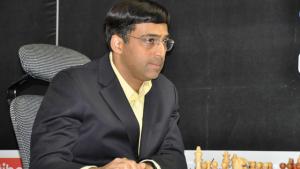
A Week in Chicago, Part 1
I recently participated in an IM norm tournament in Chicago. This was an unusual kind of tournament for me - and you might find it strange that a tournament for international master norms would have grandmasters. Most of the tournaments in which I have played have been open, Swiss-style tournaments. In fact I have only played a handful of round-robin tournaments in my life. The organizer of this particular tournament wanted to increase the rating average of the tournament, which is why he invited two GMs (myself and GM Mikheil Kekelidze).
I hadn't actually played much chess this year - in fact, prior to this one, the only tournament I had competed in was the Liberty Bell Open. The truth is that my experience in the Liberty Bell Open- and in a couple tournaments in the fall of 2013 - pretty much killed my desire to play in U.S. tournaments. The conditions have declined rapidly in the last couple of years (not that they were very good to start with), and the atmosphere was completely undignified and unpleasant.

Playing in a small round-robin such as this one was like a breath of fresh air, even if most of my opponents were lower-rated players. Still, before we started, I was concerned about whether I would be able to maintain any kind of motivation to play in a tournament with no prizes.
In the first round these worries seemed to be real when I couldn't really make myself care about the game properly, made an early opening inaccuracy, and only drew as white against FM Monokroussos (to be fair, he did play well). But in the next few rounds, I managed to get into the tournament, with wins against the young players Gopal Menon, FM Awonder Liang (the world under ten champion!) and FM Eric Rosen.
It was this last game against the young Chicago player Rosen with which I wanted to begin this short series. This was hardly the best game I have played, and certainly not the most accurate. But it was a fascinating and creative game - an enormous battle full of intrigue.
It began like this:
An unusual kind of Benoni led to this sharp position. Now White threatens 27.Bb6. My original intention had been 26...Nxd5, but this could be met by 27.Qb3. Therefore I began to look at a shocking move, which allowed White to go ahead and trap the queen anyway...
Black has two pieces for the queen and a very active position, but White is threatening the rook and hoping to return the queen by capturing on d4. While Black will be up the exchange in that case, White will have several pawns and be out of danger. Instead, a surprise followed.
An unusual, varied, and creative game, I think. Naturally I was very relieved to win it even after committing errors which threw away an easy win. But now a small comment about the time control, which was 90 minutes for each side, with a thirty second increment - what has become the standard time control for international chess:
The players spent 70(!) moves playing solely on the increment. That is 70 moves - over an hour, since each side gets 30 seconds more per move - sitting at the board, in constant tension, unable to get up or relax for a moment, always having to worry about overstepping the time limit. This would never happen under the traditional, non-increment time control - even a shorter one, such as two hours for the whole game.
Of course, this game was unusually long, but even if just the moves 40-60 had been played under these conditions, it would not be good. I am not normally the kind of player to get in time pressure - but this time control brings everybody into time pressure.

Personally, I believe the increment has not improved chess. I think it leads to poor endgame play and lots of false results, which causes unhappy emotions and a lack of artistic accomplishment. I think it would be better to have more time devoted to the overall time control, and no increment. There are good reasons why chess was never played on an "x seconds per move" basis, and the players were instead given a certain amount of time for the entire game. For one thing, some moves are more difficult than others.
Having had plenty of experience with the '90/30' time control, I can assure you that a large number of games are decided in these long periods of play with only thirty seconds a move. By devoting more time to the increment and less time to the general time control, this is assured to happen. I would prefer to have fifteen minutes on the clock for the rest of the game and be able to solve the problems with relative peace, than have one minute on the clock but get thirty seconds a move added - under those conditions, a player just cannot think.
Naturally, I understand that it is hard to change this now that it has been established, but I hope at least some people will start to consider whether or not the increment is a good thing. I have heard some other strong players say that they also do not like the increment. I am just asking that you think back to your experiences with increment and without, compare them, and if you prefer the latter, then speak up.
RELATED STUDY MATERIAL
- Learn more from GM Bryan Smith about the Benoni in his article Attack and Defense in the Modern Benoni;
- Watch IM Mark Ginsburg's video Modern Benoni1: The 'Amanovs' Thrilling Battle!;
- Learn to avoid time control woes in Chess Mentor;
- Maintain your tactical edge in Tactics Trainer;
- Looking for articles with deeper analysis? Try our magazine: The Master's Bulletin.



